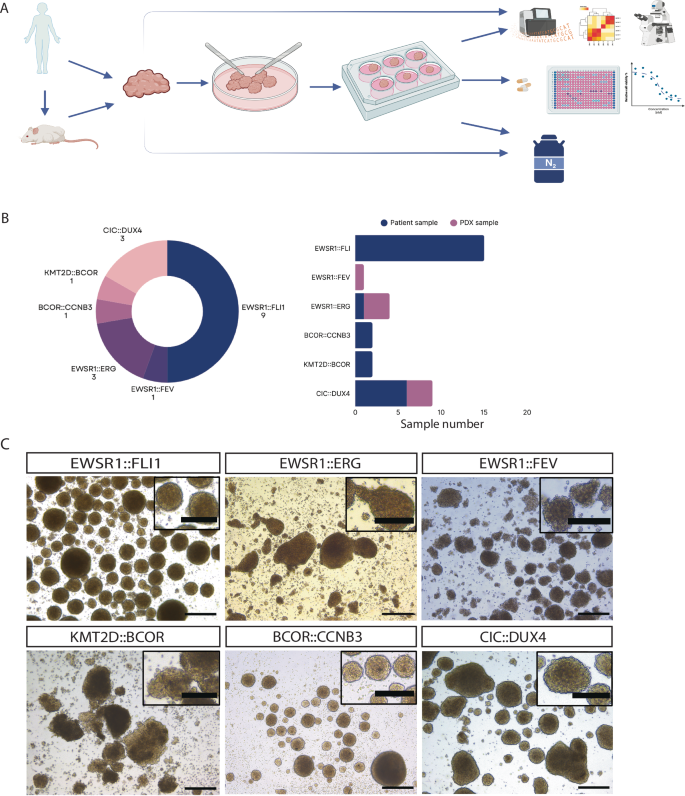Abstract: Small round cell sarcomas (SRCS) are rare and aggressive tumors that primarily affect children and young adults, but despite their genetic differences, patients are treated with the same standard chemotherapy regimen, often with poor results, especially in rare subtypes like CIC::DUX4 sarcomas. To address this challenge, researchers have developed a new pediatric tumoroid biobank that successfully captures the unique biology of these sarcomas, including Ewing sarcoma (EWSR1::FLI1, EWSR1::ERG), CIC::DUX4 sarcoma, and BCOR-rearranged sarcomas. These patient-derived tumoroid cultures preserve the histological, genetic, and transcriptional hallmarks of the original tumors while maintaining cellular diversity, providing a powerful model to study tumor biology and therapy response.
Through drug screening on this living biobank, scientists uncovered entity-specific drug sensitivities, revealing that CIC::DUX4 sarcomas are particularly vulnerable to MCL-1 inhibition, a potential breakthrough for a cancer type historically resistant to chemotherapy. The tumoroid biobank not only offers a robust platform for drug discovery but also enables tracking of tumor evolution across relapses, helping researchers design precision-based therapies. This development marks a critical step toward shifting sarcoma treatment from one-size-fits-all regimens to targeted approaches tailored to the tumor’s genetic drivers.
Get the full Research Article here: Small round cell sarcoma tumoroid biobank reveals CIC::DUX4 sarcoma vulnerability to MCL-1 inhibition | Nature Communications
